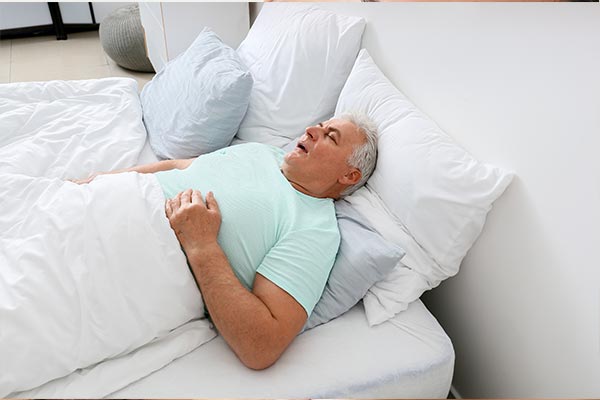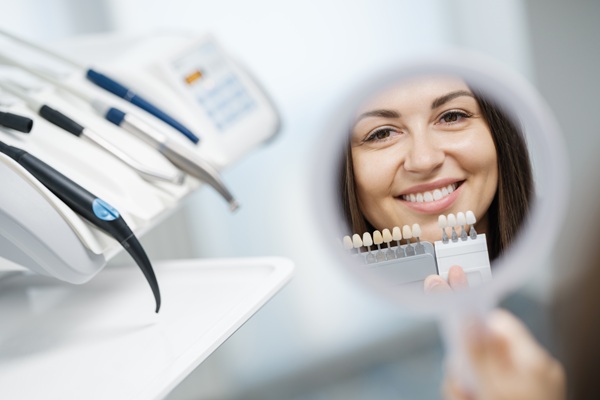 As a serious sleep disorder, sleep apnea interrupts the breathing cycle throughout the night and leaves a person feeling tired and restless. There are many symptoms that can be attributed to this condition, and a dentist can help patients evaluate whether or not they are a candidate for a diagnosis. Some of the symptoms of this sleep disorder are commonly passed off for other health conditions.
As a serious sleep disorder, sleep apnea interrupts the breathing cycle throughout the night and leaves a person feeling tired and restless. There are many symptoms that can be attributed to this condition, and a dentist can help patients evaluate whether or not they are a candidate for a diagnosis. Some of the symptoms of this sleep disorder are commonly passed off for other health conditions.
4 ways to identify the condition
There are three different types of apnea that can be diagnosed: obstructive, central, or complex sleep apnea syndrome. While all of these have different characteristics, there are a few symptoms that are common between all three types of the condition.
1. Loud snoring
Individuals of all ages and genders can experience snoring, though individuals who are overweight tend to experience more severity in the condition. For many, snoring is a mild sleep disruption that occurs when airflow through the nose and mouth is blocked. This blockage can occur because of obstructed nasal airways, a long soft palate, poor muscle tone throughout the tongue and throat, or large adenoids or tonsils that create bulky throat tissue. Obesity is also thought to contribute to a build-up of bulky throat tissue.
2. Continual fatigue
While it may not be a symptom that dentists can see during a dental exam, questions surrounding a patient’s sleeping habits and feelings of restfulness can help identify sleep apnea. The interruptions to the REM cycles make restorative, healthy sleep very difficult. Irritability, chronic fatigue, and persistent daytime drowsiness are common side effects, as well as depression, anger, and low concentration levels.
3. Tooth decay
Teeth grinding is considered a symptom of the sleep disorder, and sleep-related bruxism is just one form of apnea. For individuals with this condition, the repetitive actions of clenching and releasing the jaw-muscle while sleeping lead to grinding motions between the top and bottom teeth. Over time, the extreme force and pressure wear down the surface of the teeth. However, it also creates cracks and crevices where bacteria can get lodged and develop into cavities.
4. Chronic sore throat
Individuals that spend their mornings trying to overcome hoarseness, throat pain, or a chronic cough may need to consider a new culprit besides seasonal allergies or the common cold. Throat problems are common among those who deal with sleep disorders, and this is often confirmed in a dental exam. A chronic sore throat leads to noticeable redness in the throat, which dentists are able to address when seeing patients.
Possible ways to treat the condition
A formal diagnosis means those who struggle with symptoms are able to seek help. Oral appliances are popular treatment options with those who have mild to moderate apnea, while positive airway pressure devices are often selected for those with more severe conditions. Oral appliances are generally considered easier to wear and are more convenient, quiet, and portable.
Conclusion
Those who experience symptoms of sleep apnea can find relief through a formal assessment and diagnosis. Scheduling an appointment with a dentist can introduce patients to possible treatment options.
Request an appointment or call Complete Dental at 559-448-9000 for an appointment in our Fresno office.
Related Posts
Individuals who struggle with symptoms of sleep apnea may not realize the help their dentist can provide by assessing or treating this sleep disorder. Dentists will often ask patients about their sleep habits to assess the possibility of an individual dealing with apnea, though there are other oral health signs that could lead to a…
Unexplained fatigue, loud snoring, dry mouth, and morning headaches are all classic signs of sleep apnea. These symptoms should be taken very seriously, especially among those who fit any of these characteristics:MaleOverweight or obeseOlder in ageLiving with a preexisting medical conditionKnown to have a family history of sleep apneaWhen left untreated, sleep apnea can lead…
If you wake up feeling sleepy, it might be tempting to write it off as just another night, but if it becomes a regular problem, then it may be time to consider sleep apnea as a possible cause of this excessive tiredness. This sleep disorder occurs when breathing starts and stops throughout the night. It…


